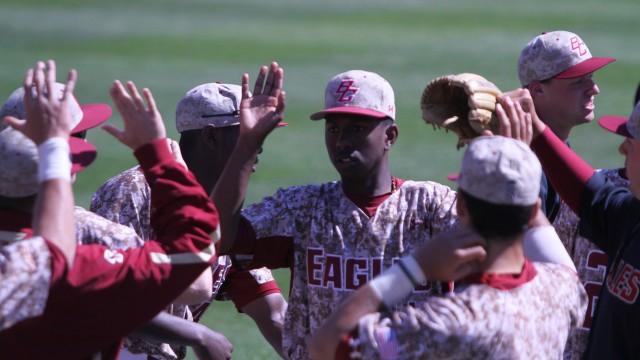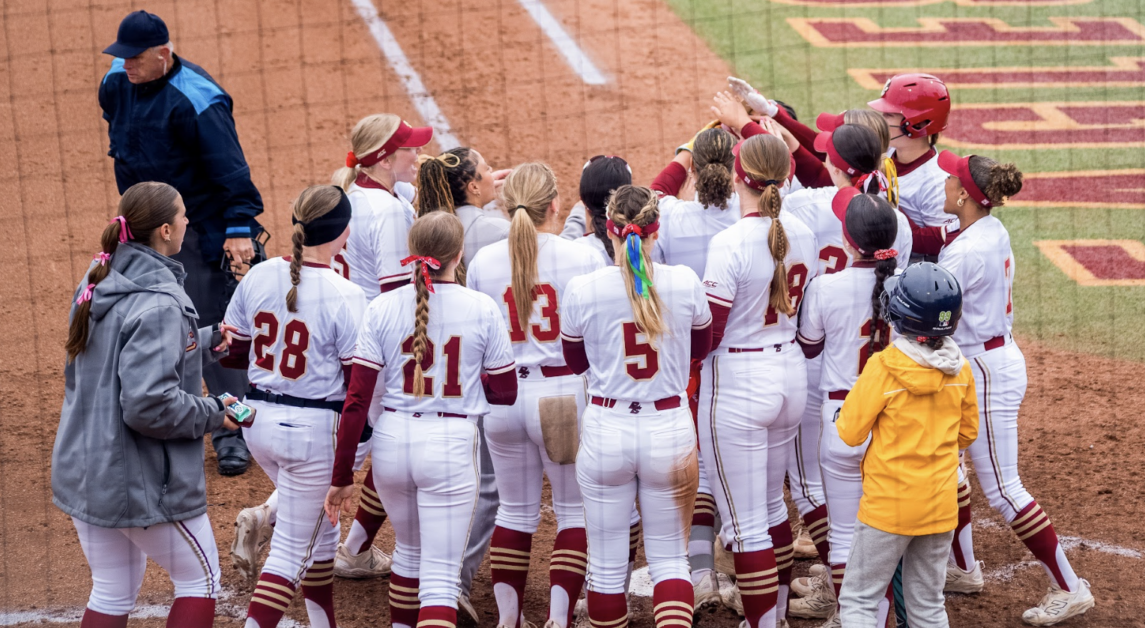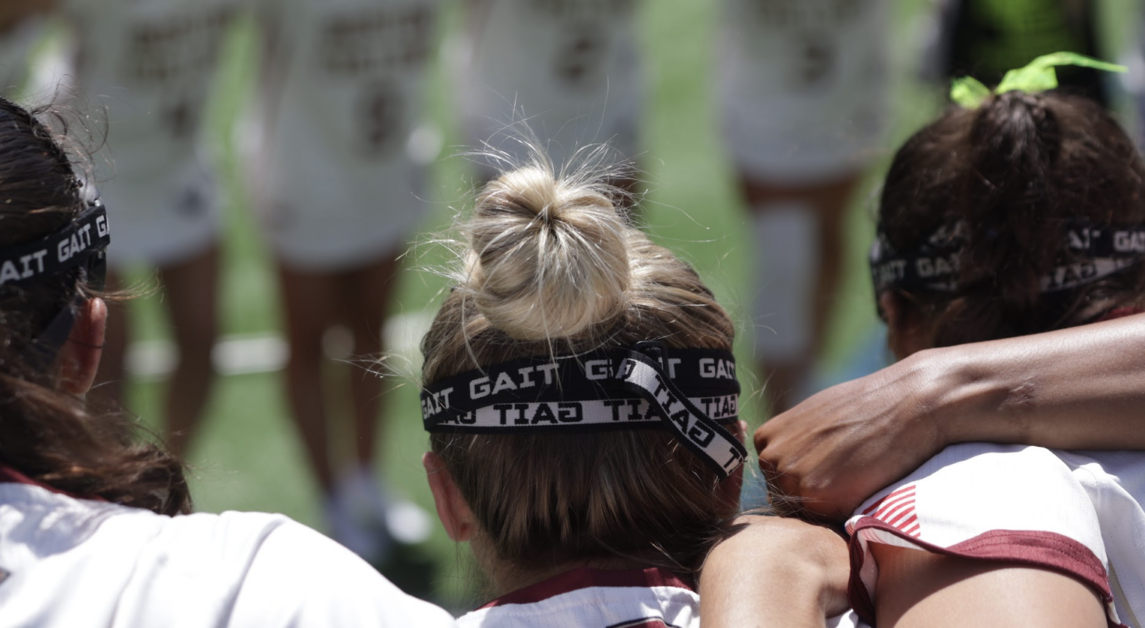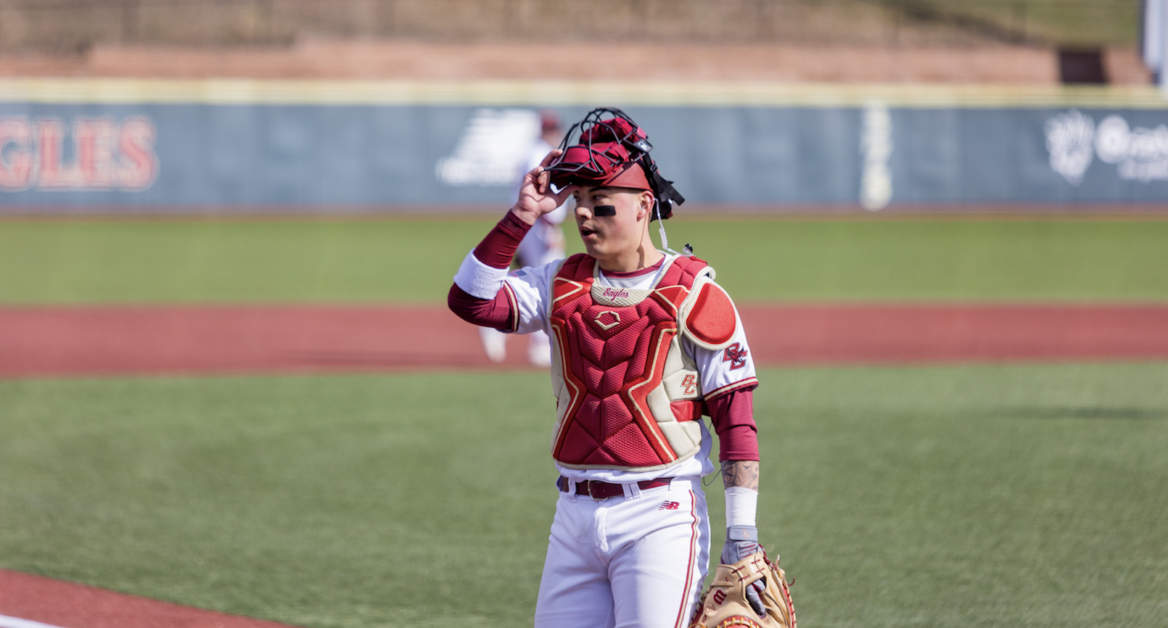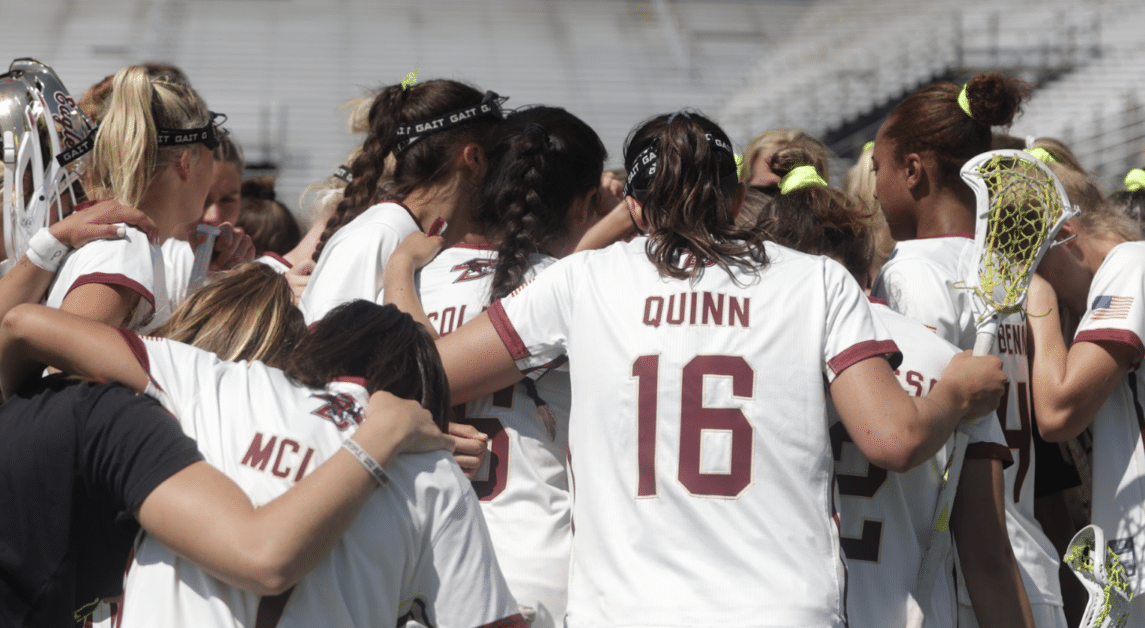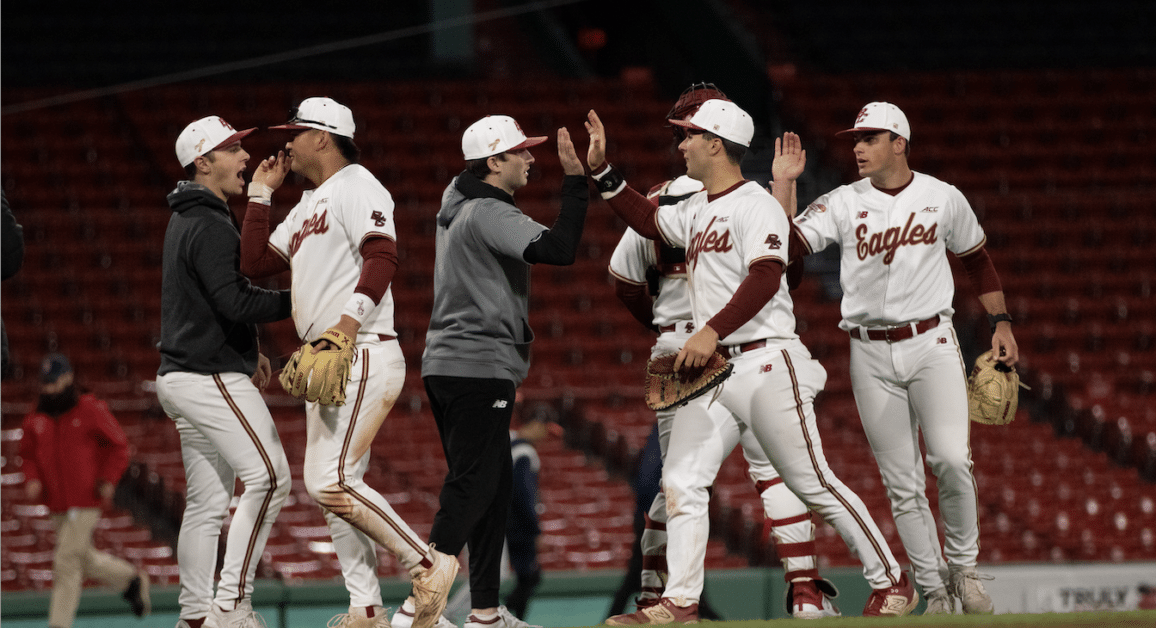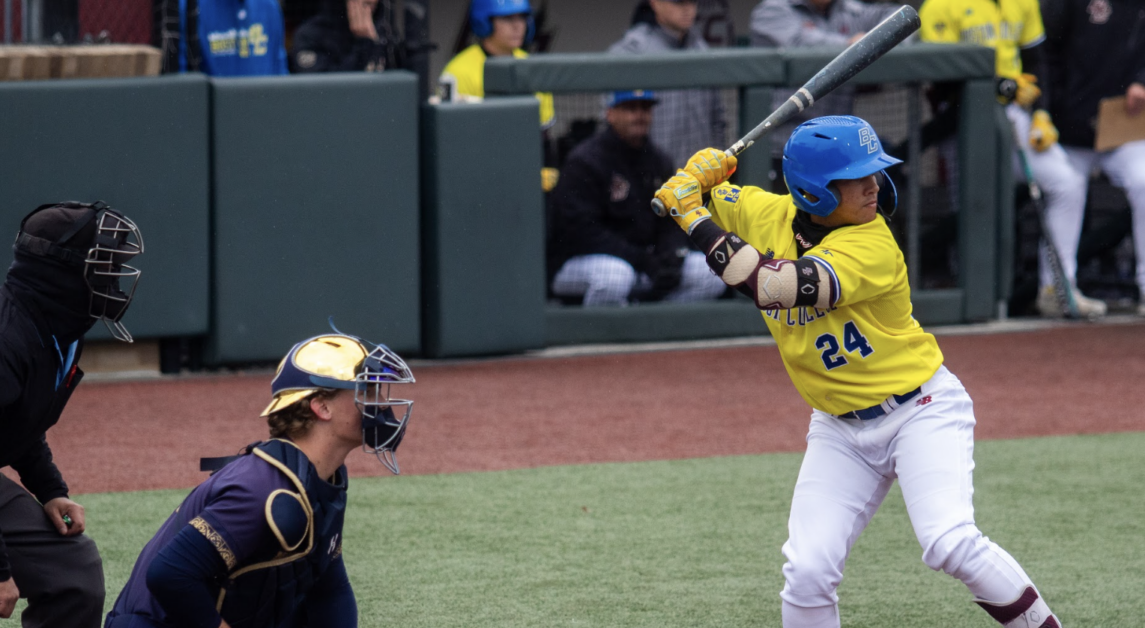The boys are back.
It has been a long go of it for Boston College baseball under head coach Mike Gambino, which over the past six years has suffered through a terrifyingly difficult schedule, harsh bouts of poorly-timed injuries, the collapse of its only indoor practice facility, and a total of 188 losses in 315 games. But just a little after noon on Monday, BC baseball’s consistent rise from the bottom took another huge step up, as the Eagles earned their first NCAA Tournament bid since 2009.
The Birds are dancing! This is the reaction when you hear your name called for the NCAA Tournament! #RoadToOmahahttps://t.co/roYRhG57It
— Boston College Baseball (@BCBirdBall) May 30, 2016
That run included a historic 25-inning game between BC and Texas—the longest game in the history of college baseball. The Eagles fell in that game, 3-2, and could not recover against Army the next day. Prior to that year, BC has made just eight appearances in the NCAA postseason, last making a trip to the College World Series in 1967.
Although BC finished in the bottom half of the ACC with a 13-15 record, the team earned a trip to the ACC tournament and a No. 3 seed in the upcoming regional, which will be hosted by Ole Miss, the No. 1 seed in the pool. The Eagles were one of 10 teams from the ACC to make the tournament—in fact, every team that made the ACC tourney will also be hosting or travelling to a regional. Though BC is still an underdog in the ACC, the Eagles did prove they can beat the best, winning six of nine ACC series this season, including three against nationally-ranked teams—Louisville, Virginia, and North Carolina State—which are hosting regionals.
“Most times, you talk about being in the middle of your conference, you talk about not having a great year,” Gambino said. “But you look at the ACC—our 11th place team [North Carolina] was the first team out … to be able to get yourself into that mix and get yourself to this point, the grind of 10 weekends is incredible, and the boys did a great job with it this year.”
BC will play No. 2 Tulane in the first round of the double-elimination bracket on Friday at 4 p.m. on ESPN3, while Utah will face Ole Miss later that night in Oxford, Miss. The winner will play the victor of the Coral Gables Regional in a best-of-three series for the chance to go to the College World Series in Omaha, Neb.
(See the full bracket here: http://www.ncaa.com/interactive-bracket/baseball/d1/2016 )
The Eagles will take on a team Friday that won the American Athletic Conference with a 39-19 record in the regular season, but slumped to 2-2 in the AAC Tournament, losing twice to Houston. While Tulane’s bats have been somewhat inconsistent this season, its top two starters, Ross Massey and Emerson Gibbs, have been solid on the hill, tallying ERAs of 2.40 and 2.44, respectively.
The Eagles, meanwhile, will have all fresh arms, unlike in their first and only game of the ACC tournament, which began just three days after the regular season, a doubleheader finale against Georgia Tech. In that game, Gambino turned to lefty Jesse Adams, a former starter who has found far more success out of the pen this season. This go around, he will have the option to go with either hard-throwing righty Justin Dunn, who is slated in numerous mock drafts to be a first-round pick this summer, or freshman Jacob Stevens, who struggled toward the tail-end of the season but still earned numerous accolades for shutting down most opponents he faced this season.
The Eagles will also need to ignite their offense, which failed to score a run in its last game out for the first time since April. But Gambino isn’t worried—not outwardly, at least. He has stubbornly stuck by his process since day one.
By now, the team has also bought in, as shown in the reaction video above.
“They all came together right away,” Gambino said of the team’s watch party reaction. “That says a lot about our club.”
But still, the exuberation of making both the ACC and NCAA playoffs isn’t enough for the head coach. His consistently referenced long-term mission—helping his guys develop enough to get to Omaha—hasn’t changed.
“That reaction I saw today, I want to see that again,” he said. “I want to see that dogpile after a regional, I want to see that after a Super [Regional].”
At long last, everything is aligning just as he hoped. But the job isn’t done yet.
Featured Image by Julia Hopkins / Heights Editor

